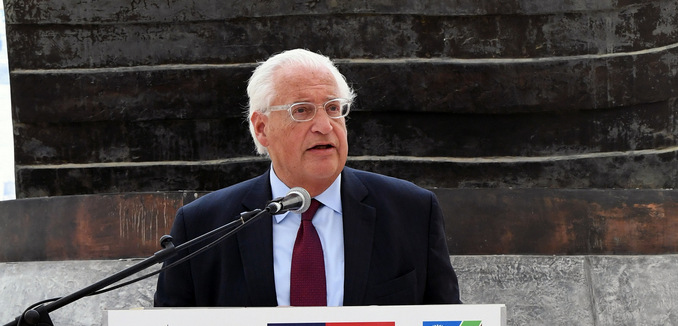The United States ambassador to Israel, David Friedman, said on Thursday that he expects the Golan Heights to remain under Israeli control “forever,” The Times of Israel reported, signalling a possible shift in policy in line with Israel’s claims over the strategic mountainous plateau.
Israel captured the territory from Syria in the 1967 Six Day War and annexed the Golan Heights in the early 1980s. Foreign governments, including the U.S., to this date do not recognize Israel’s sovereignty over the territory.
Ambassador Friedman, however, suggested in an interview with the Israel Hayom daily that Washington would consider recognizing Israeli sovereignty over the Golan Heights in the future.
“I personally cannot imagine a situation in which the Golan Heights will be returned to Syria. I frankly cannot imagine a situation in which the Golan Heights is not part of Israel forever,” Friedman said.
According to the ambassador, for Israel to return the Golan Heights to Syria would expose the country to severe security risks. The territory forms a critical buffer zone between Israel and Syria of about 450 square miles.
“Giving up the high area of the Golan Heights may put Israel at great security disadvantage, and it is unnecessary to say that I cannot think of anyone more unworthy of receiving such a prize than Assad,” Friedman said, referring to Syrian regime President Bashar al-Assad.
Recognition of Israeli sovereignty over the mountainous plateau in the northeast of the country has both support and opposition in Washington.
In an interview with Reuters last month, the White House’s National Security Adviser, John Bolton, said that, “Obviously we understand the Israeli claim that it has annexed the Golan Heights — we understand their position — but there’s no change in the US position for now.”
When asked about Bolton’s comments, Friedman indicated that the position is not set in stone and could change in the future. “Yes, that’s definitely possible. It definitely could happen,” he charged.
Last month, Syrian regime forces – backed by Iran and Russia – reached the frontier with the Israeli Golan Heights after capturing the territory from rebels and Islamic State fighters. The Israelis have argued that recent developments and the presence of Iranian troops along the border show they need to keep control over the territory.
Israel has reportedly pressed the White House in recent months to recognize the annexation, and Israeli Prime Minister Benjamin Netanyahu vowed that there is “no way” he would give up to trying to win U.S. recognition of the Golan Heights.
In July, Michael Doran, a White House official in the administration of President George W. Bush, told a Congressional panel in July that it was “manifestly in the interest of the United States” for Israel to retain sovereignty over the Golan Heights.
Legal scholar Peter Berkowitz, a senior fellow at the Hoover Institution, argued in RealClearPolitics in February 2016 that Israel’s possession of the Golan was “lawful and just” and should be supported by the United States and the international community.
In November 2015, former Israeli ambassador to the United States Michael Oren made a similar argument, urging the United States to support Israel’s claim to the Golan. “By backing Israel’s historic claims,” he wrote on CNN.com, “the United States could send a potent message to the entire Middle East — that the Golan Heights will never again be a battlefield.”
[Photo: U.S. Embassy Jerusalem / Flickr ]




